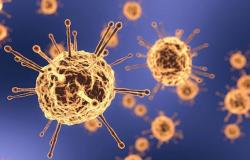AND gender dentistry was born, which studies female hormonal changes and discovers how they affect oral health. A great expert who we asked how to protect ourselves from tooth decay tells it here
gum disorders. From puberty to menopause and beyond
Men and women are also different when it comes to their teeth. Over the course of his life, he will almost certainly suffer from gum disease if he smokes. We, even if we don’t smoke. We can both have tooth decay problems of course, but we have more and, above all, we concentrate them in certain phases of life.
Teeth: gender differences
«Today we know that even when it comes to the dental system and gingival tissue there are gender differences» explains Martina Stefanini, dentist, researcher at the University of Bologna and member of WIN, Women Implantology Network, a women’s network that promotes women’s access and leadership in the dental sector for implantology. «It is now known that women have critical moments with a higher risk of problems regarding teeth and gums. Problems that manifest themselves in life stages that coincide with hormonal changes». In short, once again it all depends on them, on the hormones. But knowing this can turn into our “ace in the hole”: we have the opportunity to plan ahead with more dental checks and ad hoc treatments.
Oral hygiene tips for teenagers
Dr. Stefanini, should we raise our guard already during adolescence?
«Of course, hormonal turbulence begins with puberty which brings with it a greater risk of inflammation of the gums and pathologies of the mucous membranes, such as canker sores during the menstrual cycle. And there is a greater probability of tooth decay, linked to the bad habits typical of this age, such as high consumption of sugary drinks. So, yes, we need to raise our guard as you say, and even more so if the girl wears orthodontic braces, because it favors the accumulation of plaque and therefore a greater risk of gum inflammation.”
So what are the rules to follow?
«First of all, I recommend the electric toothbrush because it helps to clean the teeth well and brush the gums. This, in association with dental floss, allows you to remove risks. However, the water flosser, i.e. the jet of water, is not needed because it only removes macroscopic food residues, which are already eliminated with the toothbrush. As regards tooth decay, today we usually reach adolescence already protected, thanks to the sealing of the dental grooves which is carried out when the dentition is complete, with permanent teeth. And if it hasn’t been done, it can also be done in adolescence. In practice, a kind of transparent varnish is applied to the grooves which is absolutely not harmful to health, lasts for a few years and is highly likely to avoid the formation of tooth decay. This obviously does not mean abusing sugary drinks, neglecting careful hygiene and skipping visits to the dentist. Among other things, checks become essential during childbearing age, if there is also a child in your life plans, because Pregnancy is another time of major hormonal changes».
What happens to teeth and gums during pregnancy
«The problems concern the health of the gums and affect three out of four women. In particular, the hormone progestin is to blame, which can cause an increase in the permeability of the small blood vessels in the gum tissues, exposing them more likely to inflammation. The visit, to be scheduled every year and, in any case, as soon as you discover that you are pregnant, ensures that a pregnancy can be detected promptly. periodontal disease even minimal, i.e. a gum problem with bleeding and swelling, and deal with it with ad hoc therapies before it worsens during pregnancy. In this way, the bacteria present in the gum tissues are eliminated which, otherwise, through the blood circulation, could reach the placenta and trigger a risky inflammatory process even capable of causing pre-term birth, or low birth weight or, even, pre-eclampsia, i.e. hypertension. It goes without saying that there must be at least two checks within the nine months and that brushing and flossing must be the rule after every meal, including breakfast».
The risks for teeth in menopause
We haven’t talked about menopause: hormones drop and therefore also the risks for teeth and gums?
“Unfortunately not. On the contrary, the fall in estrogen affects the oral mucosa and causes its progressive thinning and loss of elasticity. This situation gradually causes less salivation and makes the mucosa more susceptible to infections, with a greater risk of gum problems. Today, however, there is a solution. Aloe and hyaluronic acid mouthwashes or gels are available for daily use. The two substances act in synergy: they regenerate and hydrate the oral mucous membranes and gums, reducing discomfort.”
After the age of 50 the probability of suffering from osteoporosis also increases: is there a link with oral health?
«Osteoporosis certainly has a close correlation with the health of the oral cavity, especially when treated with anti-resorptive drugs (bisphosphonates). Taking such drugs in menopause is associated with a high risk of osteonecrosis of the jaws following surgery or tooth extractions. Furthermore, there may be infiltrations of bacteria in the subgingival area, causing periodontal pockets and even more serious problems if nothing is done. For this reason, even during menopause, annual dental visits should not be neglected. It seems like an unnecessary recommendation, mine, right? And yet the data tells us that it is not at all: after the age of 60, attention to health often decreases and you know what? Teeth are the first to be neglected».
Your dentist’s allies
Here are the good habits to adopt, at various stages of life, to prevent dental problems and keep your smile healthy and beautiful.
During adolescence a healthy diet is recommended, reducing the consumption of excessively sugary substances. Practice correct oral hygiene at home also using an electric toothbrush, which facilitates the removal of bacterial plaque, and dental floss.
Pregnant supplements your daily diet with vitamin C which helps keep the connective tissues of the gums, those that hold the teeth in their place, healthy and strong, vitamin D and mineral salts such as iron and calcium, useful for the mineralization of bones and teeth .
In menopause Don’t forget vitamin A in your daily diet which helps stimulate saliva production. And also remember calcium and vitamin D: together, they influence the health of all bones, including those that form the architecture of the dental system.





